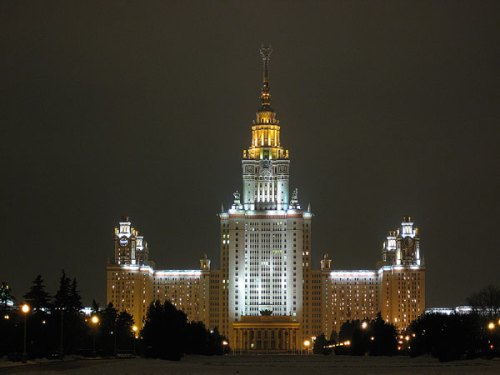‘Kak vas zavoot?’ (What is your name?)
‘Ya plokha gavaryoot pa rooske’ (My Russian is very bad)
Not to sound egoistic, but I know I could definitely learn Russian. I can read signs to a ‘for-survival’ extent and I can even help people lost on the metro. All in two weeks.
As I sit in my room on the final night of my trip to Moscow, I cannot help but think of how much the city has grown on me.
While I was travelling on the metro today, probably the last in a long time to come, I was looking around at everything in a frantic rush. A final attempt to capture and document everything in the deep crevices of my memory.
It amazes me how just another week could make me revise my opinion of something I loathed with a passion of a thousand suns. Give me another week, to figure out the cooking part and I would not mind staying here to study.
Even if this might sound hyperbolic: in just two weeks, Moscow has taught me lessons for life.
With so much history behind it, Moscow has helped me ‘open my eyes.’ Although I was a typical tourist during the initial couple of days, with a little nudge from a special friend, I started questioning and looking at why things are how they are here. Why are the buildings so imposing? And roads so wide?
It has helped me appreciate small victories. When the waitress smiled at me in awe when I successfully ordered ‘chai s molokom’ (tea with milk) I did a huge fist pump inside.
Moscow has also deflated my ego to a bit. My parents have been bragging to kingdom come about how I’m surviving (successfully) all alone in London. But studying.. staying, in a place like Russia. Now, that’s the real deal.
It has taught me not to waste time trying to figure out people. Right from my friends who are enigmas themselves, to the random stranger who didn’t even nod after he took the seat I offered him, I’ve learned that people don’t really have particular reasons to why they act in a particular way. They’re just programmed that way.
More than anything else, Moscow has taught me what a magical feeling it is to write without the internet as your aid. I still go online at the first opportunity, but I know that I can survive without it too.
As I look at the packed suitcase beside me, I cannot help but want to stay here, just for a few more days. I know I haven’t even scratched the surface of what Moscow really is. The next time I’m here, I know I would be better prepared to continue this weird love-hate relationship I have with this city.
Till then, das vidinya Moscow!
State of mind: Content and optimistic

